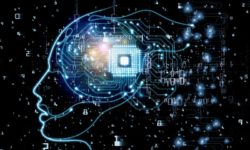Since the weaponization of artificial intelligence is now a reality, how do we go about naming algorithms from a security perspective?
Introduction
Irrespective of what or who one is, it is important to have an identity. As seen across nations, humans have always been deeply driven by their sense of identity, by who they are, and by who they belong to. Now, the human ecosystem is on its way to expanding beyond human intelligence to make room for artificial intelligence. Intense efforts are ongoing towards creating human-like machine intelligence which will be embedded into human-like robots, drones, matter, and more. As a result, there is a need for establishing identity and an identification system for all forms of intelligence.
The reason behind this is quite existential: any form of intelligence needs a sense of identity. If the thought of identity is embedded early on in the existence of an intelligent being/creation, right when development begins, it will perhaps help the intelligent being/creation distinguish themselves from the nonliving. A sense of belonging for algorithms or artificial intelligence can provide the necessary anchorage to being a part of a human ecosystem, without which could lead to a sudden shock of realizing that they are separate beings and intelligent species entirely. That brings us to a critical point for discussion: Do algorithms need identity and a sense of belonging to the human ecosystem?
Why Algorithms Need Identity
We humans often categorize ourselves in terms of our ethnicity or communities, finding it beneficial to live in groups or tribes. The fear of rejection from our tribes, ethnic groups, or communities with which we identify ourselves serves as a powerful force to check our behavior and regulate society. The very thought of losing community backing is enough to discourage many from doing anything against a society’s basic rules and principles.
Even today, when humans still define themselves by their ethnic/community membership, can we use this understanding to safeguard our future? If we are able to instill that feeling of belonging to the human tribe in algorithms, we may have a better chance of preventing AI from going off script and hurting humanity.
Why Algorithms Need A Structured Name
The rapid algorithmic advances are inciting frenzied speculation about their dual-use functions and associated security risks. From autonomous weapons systems (AWS) to facial recognition technology and decision-making algorithms, each emerging application of artificial intelligence brings with it both good and bad. It is this dual nature of artificial intelligence technology that is bringing enormous security risks not only to individuals and entities across nations: its government, industries, organizations, and academia (NGIOA) but also to the future of humanity. Any single algorithm that may provide critical economic applications might also lead to the production of modern weapons of mass destruction on a scale that is difficult to fathom.
Today, anyone can create algorithms that can have a dual-use. Anyone can purchase the necessary data, tools, and technologies to develop algorithms. Moreover, algorithms can be bought separately and integrated for any purpose. As algorithms are vulnerable to threat and manipulation, it raises a fundamental question: how are we keeping track of algorithm development, application, use, and misuse without any central naming and indexing system, accountability, oversight, and consequences?
Now, algorithms could be compared to the DNA of humans. But, they do not have their own identity as they lack the biological shell around it. Algorithms are designed and embedded in structures with many different physical forms. Drones to Robots, these structures are constructed and manufactured by humans, at times even using mass manufacturing processes.
As we move towards algorithms having consciousness, it is clear that we must start to rethink what artificial intelligence broadly means to society and what its role is to be. That brings us to an important question: to what extent has an algorithm’s name become an essential aspect in its sense of individual and collective identity?
While the rapid development of artificial intelligence has changed the human ecosystem positively, the dual nature of artificial intelligence that gives rise to different types of weaponized algorithms has been increasing simultaneously. Malicious algorithms have become a severe issue to security. That brings us to an important question: do we have a detection system that can detect malicious algorithms?
How Algorithms Are Named Today
How are algorithms and products containing algorithms named across nations today? It seems many organizations prefer to keep the algorithmic naming simple, easy to remember, and short. At times, the names function to also give them a personality. As seen today, many companies are naming algorithms or products based on a variety of methods: on the name of their developers, just an alphabetical order of names, catchiness of the name, or on animals or desserts.
As a result, algorithmic nomenclature seems to have become a necessity. So, the question is: how do we go about naming algorithms? Since the purpose of terminology is to provide simple, clear, unambiguous names for algorithms, how should we go forward?
Algorithm Features
Any algorithm can have different functionalities and features. The feature that is most vital to tag and monitor is the security feature. Algorithm nomenclature, therefore, should be focused around uniquely identifying a security feature so that the feature can be easily located, tagged, and monitored.
When an algorithm is initially developed, the developer or developing organization can give a provisional name. However, once the security risks are understood and security impact is determined, the original name should be superseded by a permanent security identity designation and be tracked and mapped.
Algorithm Naming System
In programming, a naming convention is a set of rules for choosing the character sequence to be used for personal identifiers which denote variables, types, functions, and other units in source code and documentation. Do algorithms follow the same rule? Can algorithms follow the same standard? The choice of naming conventions is a very complex and controversial issue. Also, this is said to be a matter of philosophy and proprietary intellectual property issues, and many private corporations have their own set of conventions.
If we evaluate, domain name system, almost all internet applications are required to use the existing domain name system (DNS) to resolve any domain names and achieve resource location. So, why don’t we develop an Algorithm Naming System (ANS) and make sure all algorithm applications use ANS to get a security identity and achieve location, the security index, and scope of use.
Now, security threats in any algorithm can happen in many ways. To achieve a malicious purpose, developers of the algorithm have to insert/implant malicious code to weaponize the algorithm or the algorithm decides itself not to follow the code and instructions, instead choosing to be malicious and cause damage. The algorithm can also get hacked and be manipulated to harm. In either of these circumstances, the weaponized algorithm will be a threat to humanity. If the algorithm was designed to cause damage by developers, it could perhaps be screened during the naming process, and the harm can be prevented. This is just the first step. We still need to figure out how to identify algorithms that are manipulated and misbehave.
What Next?
The debate on the nomenclature for algorithms is just beginning, and the discussion about the name for the type categories is not likely to be settled any time soon. In the meantime, the work of isolating, identifying, and reporting on weaponized algorithms must go on for the safety, security, and survival of humanity.
While Risk Group today initiates a discussion on the need for an algorithm naming system, there is a lot that needs to be done to define guidelines to help achieve the maximum degree of security nomenclature consistency in regards to algorithms. It is essential to decide who will be the judge of algorithm security nomenclature. Establishing security guidelines is one thing, but ensuring its enforcement across nations: its government, industries, organizations, and academia (NGIOA) is a whole other thing.
NEVER MISS ANY OF DR. PANDYA’S POSTS
Just join here for a weekly update





 The Race To Mine Space
The Race To Mine Space